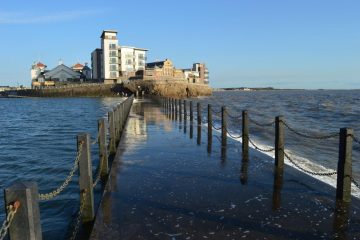Discovering the Beauty and Importance of Dorset

Introduction
Dorset, located in the south of England, is renowned for its breathtaking coastlines, historical landmarks, and diverse landscapes. Known for its Jurassic Coast, a UNESCO World Heritage Site, Dorset draws millions of visitors each year. However, recent developments in conservation and tourism strategies have a significant impact on how both locals and visitors engage with this unique region.
Tourism and Economic Impact
According to recent data, tourism in Dorset contributes over £2 billion to the local economy annually. With attractions ranging from the stunning cliffs of the Jurassic Coast to the picturesque towns of Lyme Regis and Dorchester, the region has become a hotspot for domestic and international tourists alike. Local businesses have adapted to the increasing footfall by enhancing services and infrastructure, creating job opportunities for residents.
Conservation Efforts
As the popularity of Dorset’s natural beauty continues to grow, so do the concerns regarding conservation. The Dorset Council has implemented several initiatives aimed at protecting the environment and promoting sustainable tourism. These include habitat restoration projects and strategies aimed at reducing plastic waste along the coast. In 2023, a significant increase in volunteer participation in beach clean-ups has been recorded, reflecting a community-driven approach toward safeguarding their natural surroundings.
Community and Events
Dorset is not only about its scenery; the local community also plays a vital role in the region’s cultural landscape. Annual events, such as the Dorset Seafood Festival and the Bridport Hat Festival, have continued to thrive, showcasing local talent and produce. These events not only celebrate the unique identity of Dorset but also encourage engagement among residents and visitors, fostering a sense of belonging and pride in local culture.
Conclusion
Dorset continues to be a significant location for both leisure and conservation, balancing tourist demand with environmental responsibility. As we move forward, maintaining this delicate balance will be crucial for preserving the area’s charm while ensuring it remains an attractive destination for future generations. With ongoing community efforts and strategic planning from local authorities, Dorset is set to enhance its reputation as a haven of natural beauty and cultural richness.


